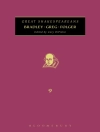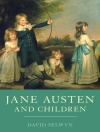This handbook illustrates the evolution of literature and science, in collaboration and contestation, across the twentieth and twenty-first centuries. The essays it gathers question the charged rhetoric that pits science against the humanities while also demonstrating the ways in which the convergence of literary and scientific approaches strengthens cultural analyses of colonialism, race, sex, labor, state formation, and environmental destruction.
The broad scope of this collection explores the shifting relations between literature and science that have shaped our own cultural moment, sometimes in ways that create a problematic hierarchy of knowledge and other times in ways that encourage fruitful interdisciplinary investigations, innovative modes of knowledge production, and politically charged calls for social justice. Across units focused on epistemologies, techniques and methods, ethics and politics, and forms and genres, the chapters address problems rangingacross epidemiology and global health, genomics and biotechnology, environmental and energy sciences, behaviorism and psychology, physics, and computational and surveillance technologies.
Chapter 19 is available open access under a Creative Commons Attribution 4.0 International License via link.springer.com.
Spis treści
1. Introduction.- 2. “Mediating the Moon: Ferdinand Kriwet’s Apollo Mission”, Kurt Beal.- 3. “Writing the Elements at the End of the World: Varlam Shalamov and Primo Levi”, Anindita Banerjee.- 4. “The Aesthetic Textuality of Oil”, Brent Ryan Bellamy.- 5. “Literature and Energy”, Jordan B. Kinder and Imre Szeman.- 6. “Triangulate: Literature and the Sciences Mediated by Computing Machines”, Yves Citton.- 7. “Behaviorism and Literary Culture”, Scott Selisker.- 8. “I’m Dying To!: Biopolitics, Suicide Plots, and The Ecstasy of Withdrawal”, Dana Seitler.- 9. Science, Literature, and the Work of the Imagination”, Bishnupriya Ghosh.- 10. “Edith Wharton’s Microscopist and the Science of Language”, Emily Coit.- 11. “Reading Generously: Scientific Criticism, Scientific Charity, and the Matter of Evidence”, Todd Carmody.- 12. “Literary Studies in a Transdisciplinary Research Project: Genetic Privacy and the Case of Henrietta Lacks”, Jay Clayton and Claire Sisco King.- 13. “Incantatory Fictions and Golden Age Nostalgia: Futurist Practices in Contemporary Science Fiction”, Rebecca Wilbanks.- 14. “Reading Science: SF and the Uses of Literature”, Amy C. Chambers and Lisa Garforth.- 15. “Linguistic Relativity and Cryptographic Translation in Samuel Delany’s Babel-17”, Joseph Fitzpatrick.- 16. “Autopoiesis between Literature and Science: Maturana, Varela, Cervantes”, Avery Slater.- 17. “Listening to Pandemics: Sonic Histories and the Biology of Emergence”, Robert Peckham.- 18. To Feel an Equation: Physiological Aesthetics, Modern Physics, and the Poetry of Jay Wright”, Steven Meyer.- 19. Max Ritvo’s Precision Poetry”, Lara Choksey.- 20. New Physics, New Faust: Faustian Bargains in Physics before the Atomic Bomb”, Jenni G. Halpin.- 21. “The Matter of In-Vitro Meat: Speculative Genres of Future Life”, Coleman Nye.- 22. “Bodies Made and Owned: Rewriting Life in Science and Fiction”, Sherryl Vint.- 23. “The Sciences of Mind and Fictional Pharmaceuticals in White Noise and The Corrections”, Natalie Roxburgh.- 24. “Eugenic Aesthetics: Literature as Evolutionary Instrument in the Early Twentieth Century”, Kyla Schuller.- 25. “Angry Optimism: Climate Disaster and Restoration in Kim Stanley Robinson’s Alternate Futures”, Everett Hamner.- 26. “Oil and Energy Infrastructures in Science Fiction Short Stories”, Chris Pak.- 27. “Biology at the Border of Area X: The Significance of Skin in Jeff Vander Meer’s Southern Reach Trilogy”, Sofia Ahlberg.- 28. “Overlapping Agencies: The Collision of Cancer, Consumers, and Corporations in Richard Powers’s Gain”, Jeff Gonzalez.- 29. “‘Golden Dust’ in the Wind: Genetics, Contagion, and Early Twentieth-Century American Theatre”, Kirsten E. Shepherd-Barr.- 30. “The Art and Science of Form: Muriel Rukeyser, Charles Olson and F. O. Matthiessen at Mid-century”, S.H. Daw.- 31. “Racial Science and the Neo-Victorian Novel”, Josie Gill.- 32. “W.E.B. Du Bois’s Neurological Modernity: I.Q., Afropessimism, Genre”, Michael Collins.- 33. “Graphic Bombs: Scientific Knowledge and the Manhattan Project in Comic Books”, Lindsay Michael Banco.- 34. “‘The Path of Most Resistance’: Surgeon X and the Graphic Estrangement of Antibiosis”, Lorenzo Servitje.- 35. “The Automation of Affect: Robots and the Domestic Sphere in Sinophone Cinema”, Nathaniel Isaacson.- 36. “Superman Holey Weenie and the Sick Man of Asia”, Carlos Rojas.- 37. “Modeling Long Novels: Network Analysis and A Brief History of Seven Killings”, Lindsay Thomas.
O autorze
The Triangle Collective includes academics and scholars who have trained and or taught at Duke University, University of North Carolina-Chapel Hill, and North Carolina State University, USA. The editors in the collective are Neel Ahuja, Monique Allewaert, Lindsey Andrews, Gerry Canavan, Rebecca Evans, Nihad M. Farooq, Erica Fretwell, Nicholas Gaskill, Patrick Jagoda, Erin Gentry Lamb, Jennifer Rhee, Britt Rusert, Matthew Taylor, Aarthi Vadde, Priscilla Wald, and Rebecca Walsh.












